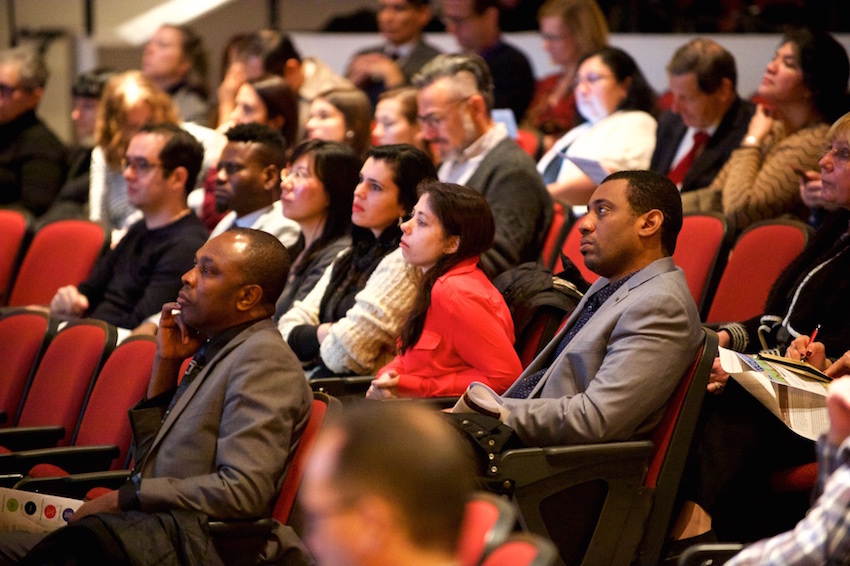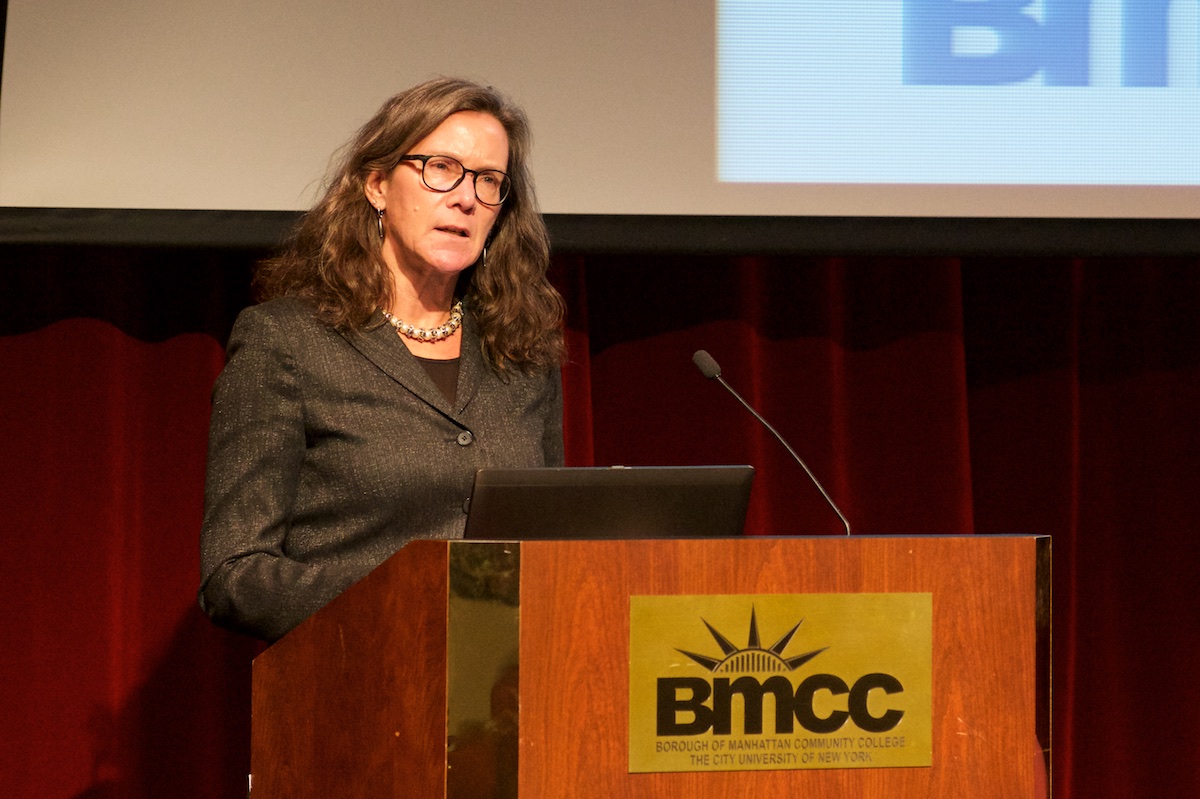
Borough of Manhattan Community College (BMCC/CUNY) held its second annual Faculty Convocation on January 24, presenting a day of panels and workshops on topics that ranged from improving student reading comprehension to spatial thinking across the curriculum.
“The convocation has become a tradition for engaging our colleagues in conversations about what matters to students,” said Jim Berg, Associate Dean of BMCC Faculty.
The theme of the day’s events was spelled out during a morning address in Theater 1 from BMCC Provost and Senior Vice President of Academic Affairs, Karrin E. Wilks. She framed her remarks around three key elements: designing for equity, designing a culture of care, and designing for progress and momentum.

“BMCC’s highest priority is improving student success—not incrementally, but dramatically,” said Provost Wilks (shown right). “Some colleges focus on the top 20 or 30 or even 50 percent of students, expecting certain levels of failure. Given our mission and the role of community colleges in this country, our work is about taking responsibility for the top 100 percent, that is, every single student.”
BMCC has a strategic plan based on a student progression model that measures student success at every key transition point along their educational journey, Wilks explained. These transitions begin with the remediation that prepares students for college-level work and continue to their eventual graduation and transfer to a four-year college or entry to the workplace, where they can “ultimately earn family-sustaining wages.”
In order to improve student success, “We must intentionally design for student success at every one of these transition points,” Wilks said, and while acknowledging that graduation and retention rates are going up for some students, “We can do better.”
Before closing her remarks, Wilks elaborated on how social and economic factors such as food insecurity can impact a student’s academic performance. She referred to scholar-activist Sara Goldrik-Rab, who recommends that teachers include a statement in their syllabus encouraging “any student who faces challenges securing their food or housing” to get in touch with their Dean of Students and notify their professor. “This will enable her to provide any resources that she may possess,” Goldrik-Rab says.
Wilks’ address was followed by a panel of three BMCC professors: Erica Campbell, who is part of the 2016-2017 BMCC Teaching Academy, as well as Geoffrey Klok and Matthew Marcus, who both won the Distinguished Teaching Award in 2017.
Associate Dean Jim Berg facilitated the panel, introducing topics such as how the perception of student success might look different from an administrator’s and teacher’s perspective, and how in designing student success, professors approach “learning how to learn.”
After a complimentary lunch in BMCC’s A. Philip Randolph Memorial Library at 199 Chambers Street, the Convocation continued with six panels and eight workshops for professors. Topics included the pedagogy of Open Education Resources (OER), using the creative arts to engage analytical thinking and other areas. The day closed with poster sessions in which faculty and administrators presented their research projects and programs. These included a focus on entrepreneurship, research in the chemistry classroom, improving student readiness for Gateway courses and more.
The 2018 Winter Convocation was coordinated by a planning committee that included Jean Amaral, Helene Bach, Suvro K. Banerjee, Margaret Carson, Maria Castillo, Gina Cherry, La-Dana R. Jenkins, Anna (Vidiaev) Krupitskiy, Patricia D. Mathews-Salazar, Christopher O. Medellin, Abel E. Navarro, Mindi Reich-Shapiro, Ruru Rusmin, Rifat Salam, Brenda Vollman and Ann Yancey.
STORY HIGHLIGHTS
- Annual Winter Faculty Convocation held January 24
- The day of presentations, panels, workshops and poster sessions opened with an address by Provost Karrin E. Wilks
- Attendees and presenters focused on designing instruction to raise retention and graduation rates while addressing equity and social justice issues

